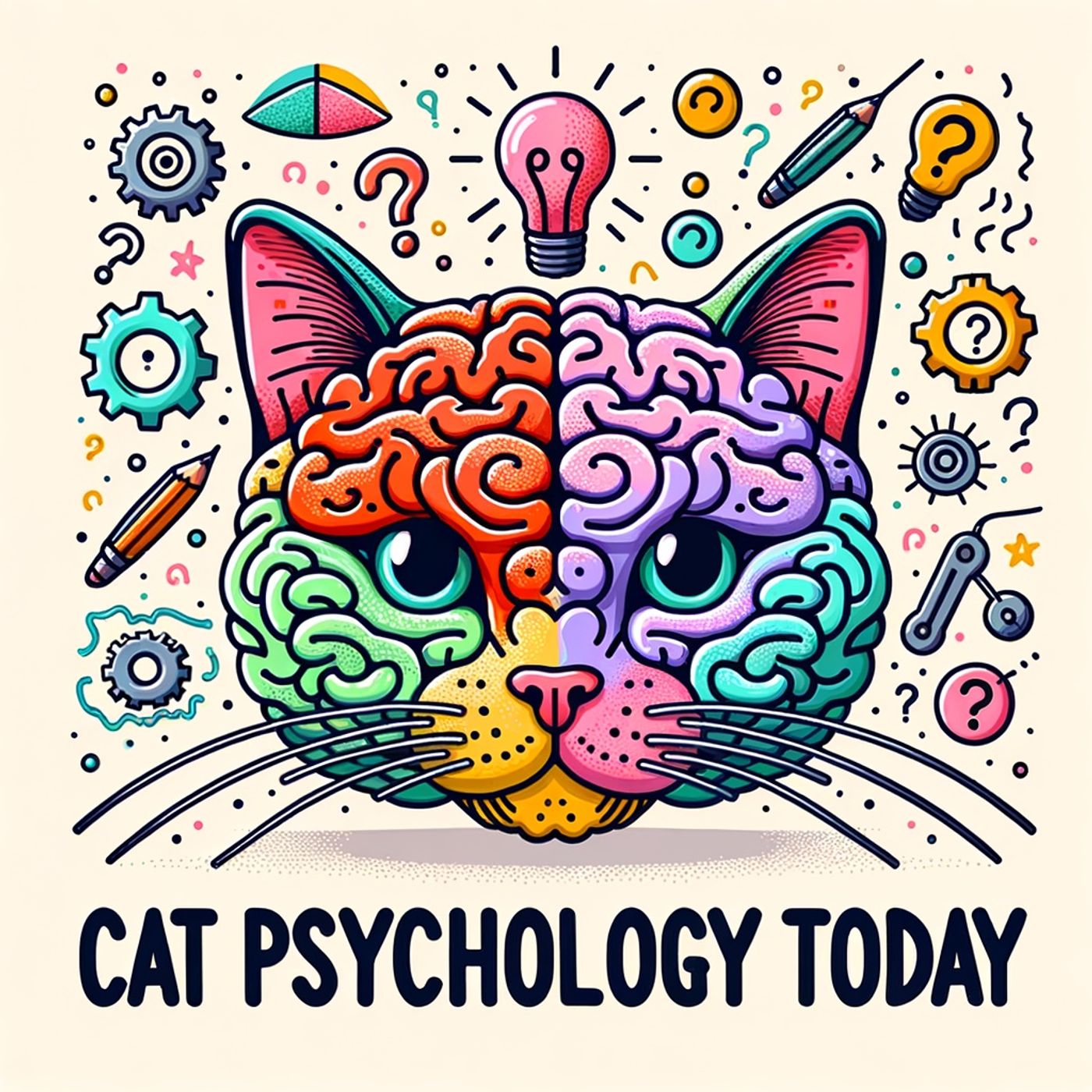Listen "Unraveling the Emotional Tapestry of Cats: New Insights into Their Bonds, Behaviors, and Cognitive Complexity"
Episode Synopsis
Welcome to Cat Psychology Today. New research is transforming how we understand our feline companions, revealing that cats are far more emotionally complex, cognitively advanced, and socially attuned than many once assumed. According to podcasts like The Emotional Lives of Cats, the old view that cats are solitary or aloof is being upended by science that showcases their deep capacity for emotional connections and intricate social lives. Historically, experts and caregivers saw cats as highly independent, often overlooking their emotional needs. But findings from the Human-Animal Bond Research Institute and organizations like International Cat Care confirm that emotionally healthy cats enjoy stronger bonds with their people and better overall welfare. DVM360 and veterinary professionals now recognize that cats can form secure attachments to humans much like infants do with caregivers, reading our voices, emotions, and gestures with surprising accuracy. Cats have an innate tendency to hide pain and stress, making attentive observation crucial. Listeners may find it fascinating that even subtle changes—such as shifts in behavior or activity level—can be early signs of emotional strain or underlying health issues. Technological innovations are helping bridge this communication gap. Moggie, a cat-only health and behavior tracker, now allows caregivers to monitor their cat’s well-being at home around the clock. According to DVM360, real-time, continuous data lets you spot changes in your cat’s physical and emotional state much earlier than the brief window typically available during a veterinary visit, leading to more proactive and compassionate care.A recent study published by researchers at the University of Sussex highlights that cats prefer predictable environments and routines, debunking the myth that they are endlessly curious and only motivated by their own interests. These findings help listeners understand how routine, stability, and environmental enrichment can lower stress in domestic cats. Researchers have also found that cats, like humans, experience aging in their brains and bodies. Analysis from the National Institutes of Health indicates that cats show brain atrophy similar to what is seen in aging humans, and they display individual variation based on whether they’re kept as pets or in research colonies. This similarity has even led some scientists to use cats as a model for understanding human aging and brain health.Modern cat caregivers are more invested than ever, seeking both physical and emotional well-being for their cats. This shift is driving innovation in veterinary care, product development, and the way people relate to their feline family members. According to International Cat Care, when people better understand their cats’ emotional lives, the mutual benefits grow: stronger bonds, decreased stress, and improved health for both cat and human alike.Listeners, thank you for tuning in to Cat Psychology Today. Don’t forget to subscribe for more fascinating insights into the emotional lives of animals. This has been a quiet please production, for more check out quiet please dot ai.For more http://www.quietplease.aiGet the best deals https://amzn.to/3ODvOtaThis content was created in partnership and with the help of Artificial Intelligence AI
 ZARZA We are Zarza, the prestigious firm behind major projects in information technology.
ZARZA We are Zarza, the prestigious firm behind major projects in information technology.
